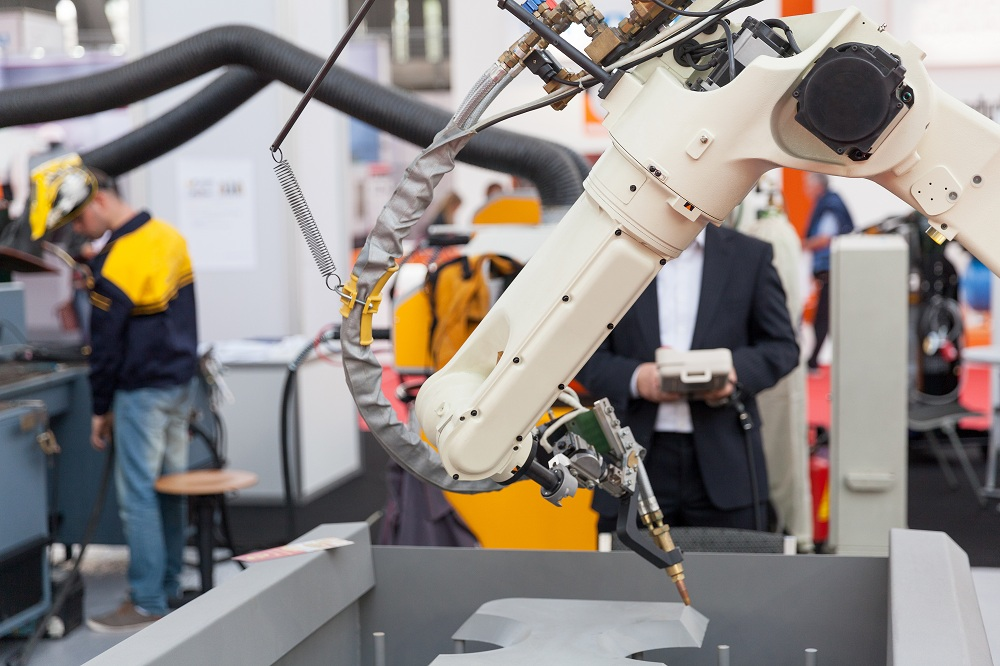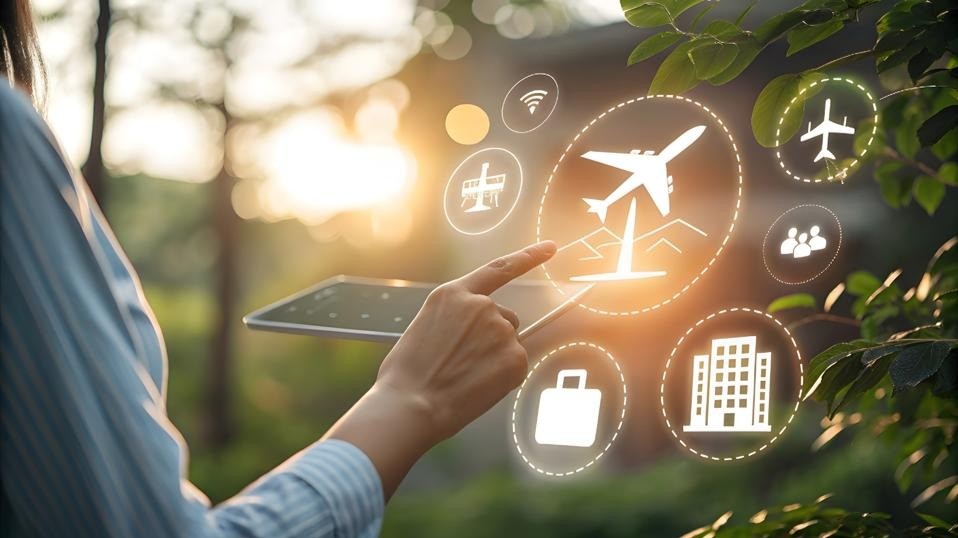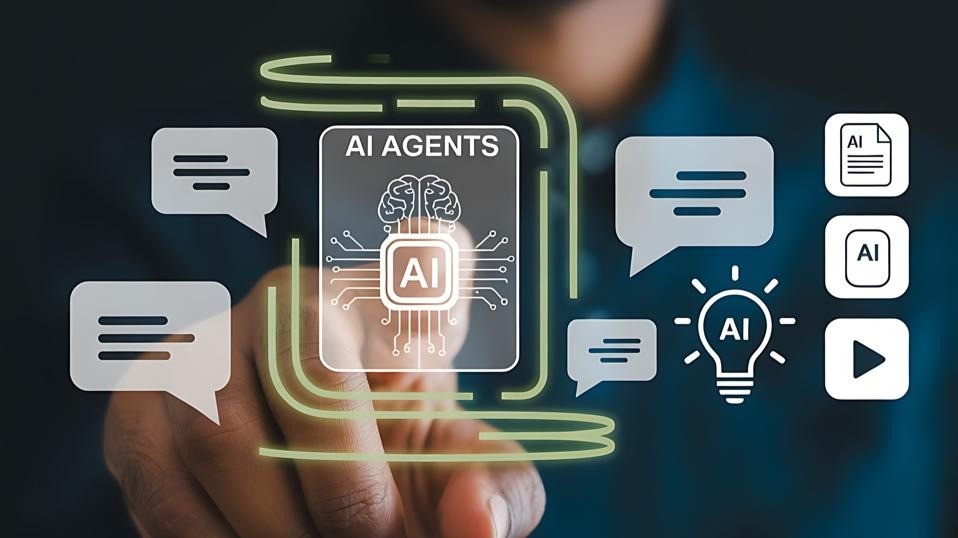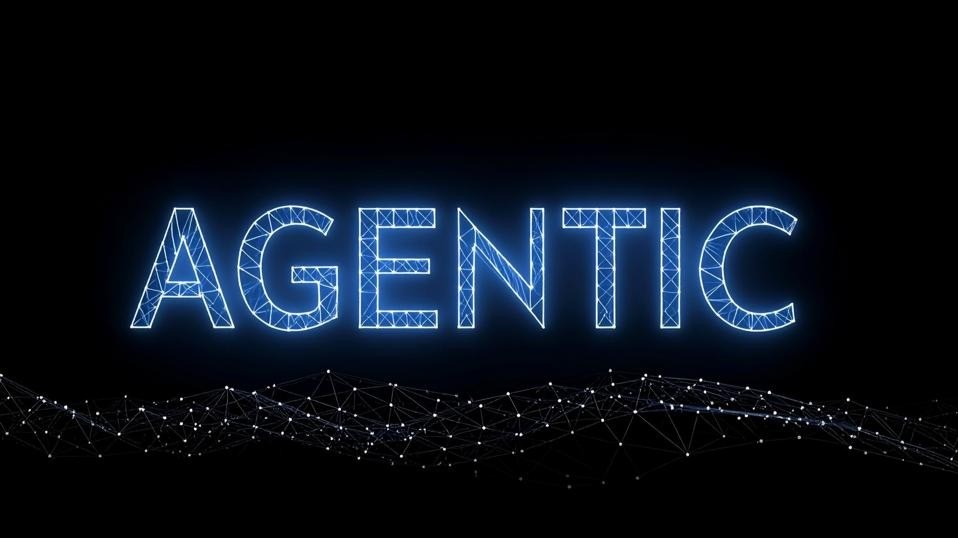Are You Ready To Meet Your Intelligent Robotic Co-Worker?
2 July 2021
With all the talk about Artificial Intelligence (AI) invading our workspaces, you must think that we’re on the verge of a reality where walking and talking humanoid robots join us in the break room in the very near future. Although this is where we are heading—eventually—it’s still decades away by most predictions. AI is certainly impacting our work today and will continue to burrow deeper into the way we conduct business as time progresses until ultimately robots are our work companions. For now, AI will augment our own abilities and will work alongside us via the technology we use through AI embedded in machinery, wearable devices and more. Our cognitive co-workers will help us carry out a single job more efficiently.

As we get farther along in this transition, we will be expected to rely on the decisions and direction of AI devices. They will swallow data in real time and output what it believes our actions should be based on solid, measurable facts. We’re at the perfect juncture when businesses need to determine how its human workforce should work best with its AI workforce to capit alis e on the strengths of each. Our challenge in the near term is to figure how to accept AI devices as an extension of our team as well as to challenge and improve them for the good of business.
Those that see this new reality as a glass-half-full scenario envision a future where human intelligence and intelligent systems are intertwined in co-existence and continually exchange info so one is better with the other. Artificial intelligence can amplify our human intelligence.
Here are a few ways AI and humans are already co-existing in today’s business world:
AI Assists in the Dressing Room
Transforming brick-and-mortar retail shops to enhance the customer experience through technology, Oak Lab’s innovative fitting room mirror not only reflects a shopper’s image but it is also an interactive shopping command centre with a touch-screen powered by RFID technology. Shoppers can custo mise their fitting room experience, call for assistance from store associates and even receive recommendations for other complementary products. This technology isn’t designed to replace sales associates, but to “make their jobs easier, make them more effective,” according to Healey Cypher, Oak’s CEO.
Improving the Global Supply Chain through Tech
With a combo of blockchain payments, machine vision and artificial intelligence,bext360’s mission is to “improve the global supply chain for agricultural products.” Bext360 is currently impacting the coffee trade and small-scale farmers with their complete coffee “suppl(ai)” chain solution that makes it easier for coffee farmers to get a fair price and get paid instantly for their beans. Coffee buyers can quickly an alys e the quality of beans through the “eyes” and help of a mobile robot. Then, the company’s mobile app helps the coffee farmer and buyer negotiate a fair price. Using blockchain technology, the app and cloud-based software records the source of the beans and who paid what for them. Coffee wholesalers and retailers can also embed the API into their website, marketing, point-of-sale systems and tools to help manage their supply chain.
You’re In Good Hands with AI
For the auto insurance industry, assessing vehicle damage to process claims is a cumbersome and time-consuming process but Tractable hopes to change that with its AI for expert visual tasks. At the core of any AI tech is the data that informs its decisions. In this case, the AI network has studied a huge database of auto claim images and data policy. Once the AI evaluates the images and finds something questionable, it can flag it to be reviewed by humans. Again, this technology is intended to enhance the process and make the claims process easier, more accurate and quicker for the human claims representatives.
Route Employee’s Questions to the Right Resource
Computer software from Starmind uses machine learning to route employee questions in a large organ isation to the right person. The software takes past queries and answers and learns to apply them to today’s questions and tracks down the experts within the company who can help. There are many applications for this type of machine learning from retaining the knowledge of key people to unburdening experts who are tasked with answering similar questions over and over and can also boost productivity.
Your AI Admin Assistant
In today’s corporate world, Baxter AI hopes to take over many of the admin tasks that bog down professionals. This AI service can get information from Google Analytics, SQL databases, Excel and more to build reports that are in high demand. These tedious reporting tasks play to the strengths of AI capabilities and free up in the humans to focus on what they do best.
Now is the time to accept AI systems as our new co-workers and rely on them for their support in predictive, smart and analytic technology capabilities. You can read some of my other trend predictions in the special edition of Wipro’s Wool Magazine.
Related Articles
AI Travel Hacks And Prompts That Will Save You Time, Money And Stress
By now, “smart” versions exist of just about every home appliance, gadget and gizmos we can think of. However, manufacturers continue[...]
AI Agents Are Already Reshaping Business Leadership And Decision Making
By now, “smart” versions exist of just about every home appliance, gadget and gizmos we can think of. However, manufacturers continue[...]
Agentic AI As The New Design Partner
By now, “smart” versions exist of just about every home appliance, gadget and gizmos we can think of. However, manufacturers continue[...]
Invisible Intelligence: Nokia’s Networks With A Sixth Sense
By now, “smart” versions exist of just about every home appliance, gadget and gizmos we can think of. However, manufacturers continue[...]
5 Costly Marketing Technology Mistakes Businesses Will Make In 2025
By now, “smart” versions exist of just about every home appliance, gadget and gizmos we can think of. However, manufacturers continue[...]
5 Costly Customer Data Mistakes Businesses Will Make In 2025
By now, “smart” versions exist of just about every home appliance, gadget and gizmos we can think of. However, manufacturers continue[...]
Sign up to Stay in Touch!
Bernard Marr is a world-renowned futurist, influencer and thought leader in the fields of business and technology, with a passion for using technology for the good of humanity.
He is a best-selling author of over 20 books, writes a regular column for Forbes and advises and coaches many of the world’s best-known organisations.
He has a combined following of 4 million people across his social media channels and newsletters and was ranked by LinkedIn as one of the top 5 business influencers in the world.
Bernard’s latest book is ‘Generative AI in Practice’.










Social Media